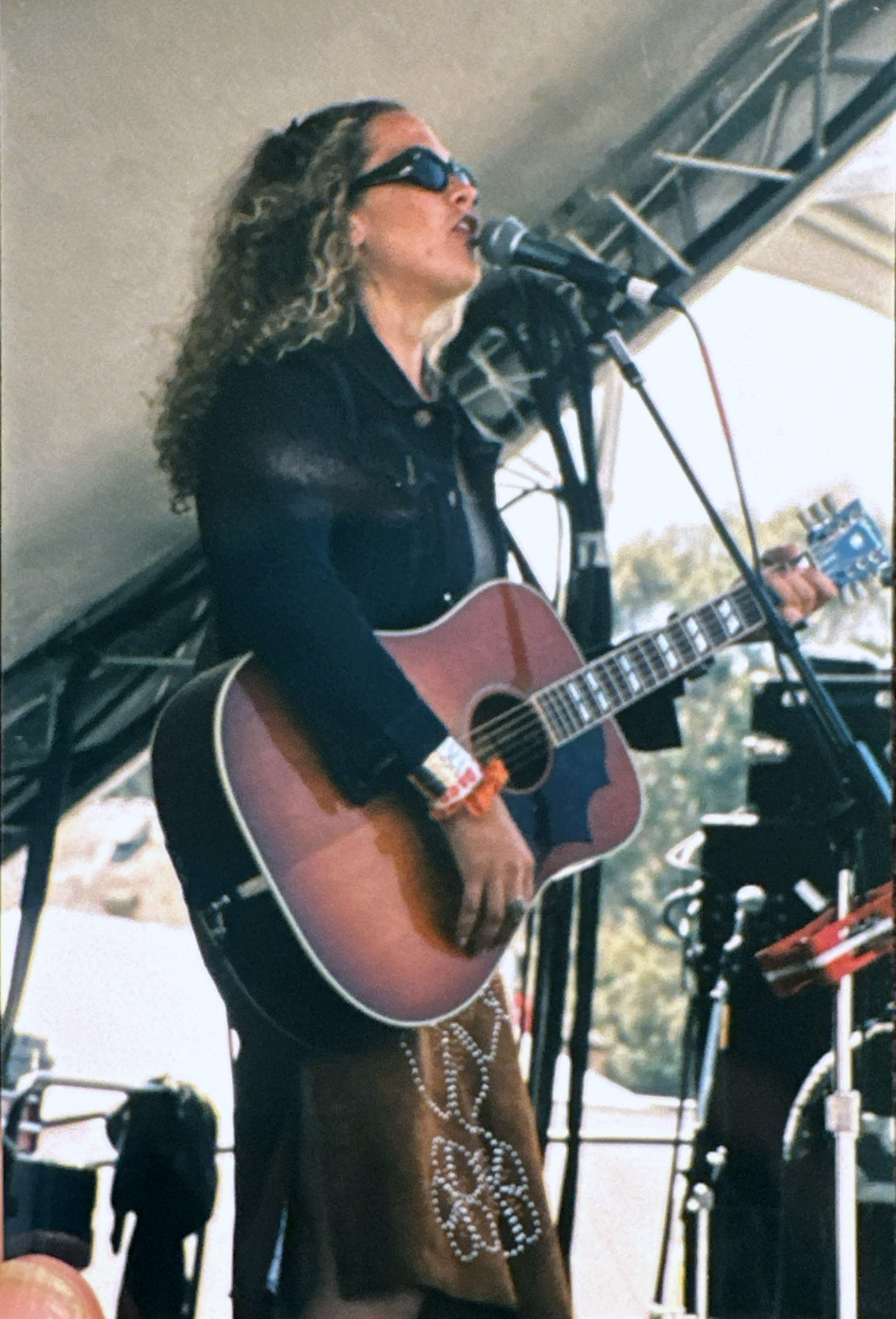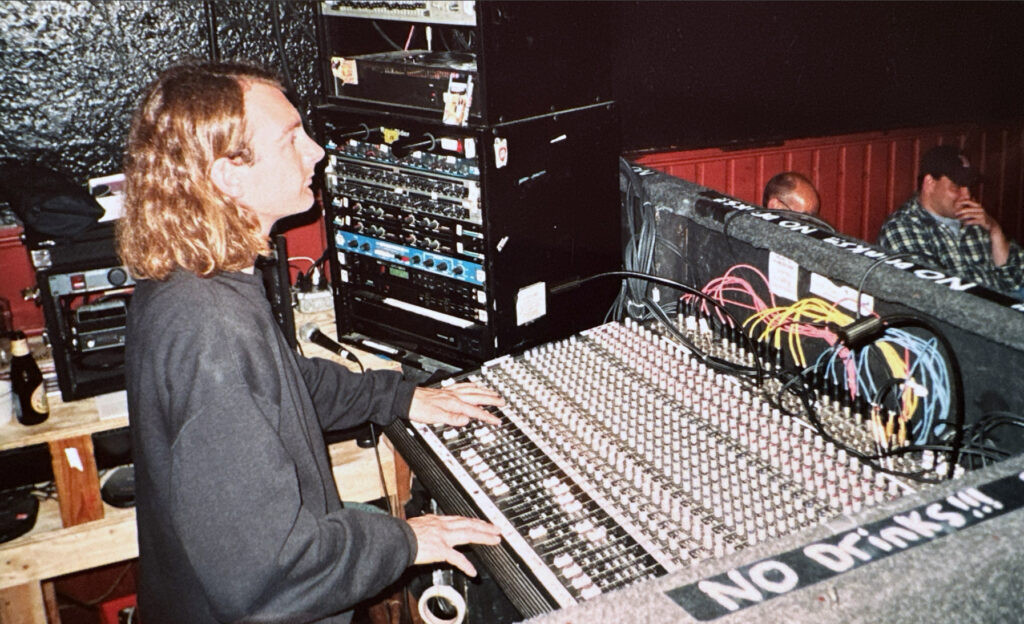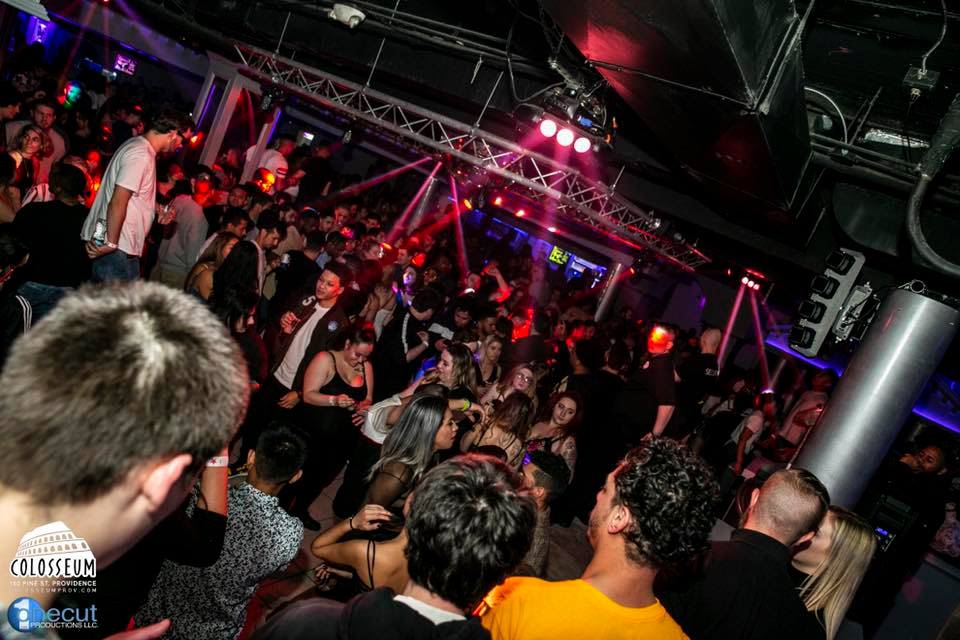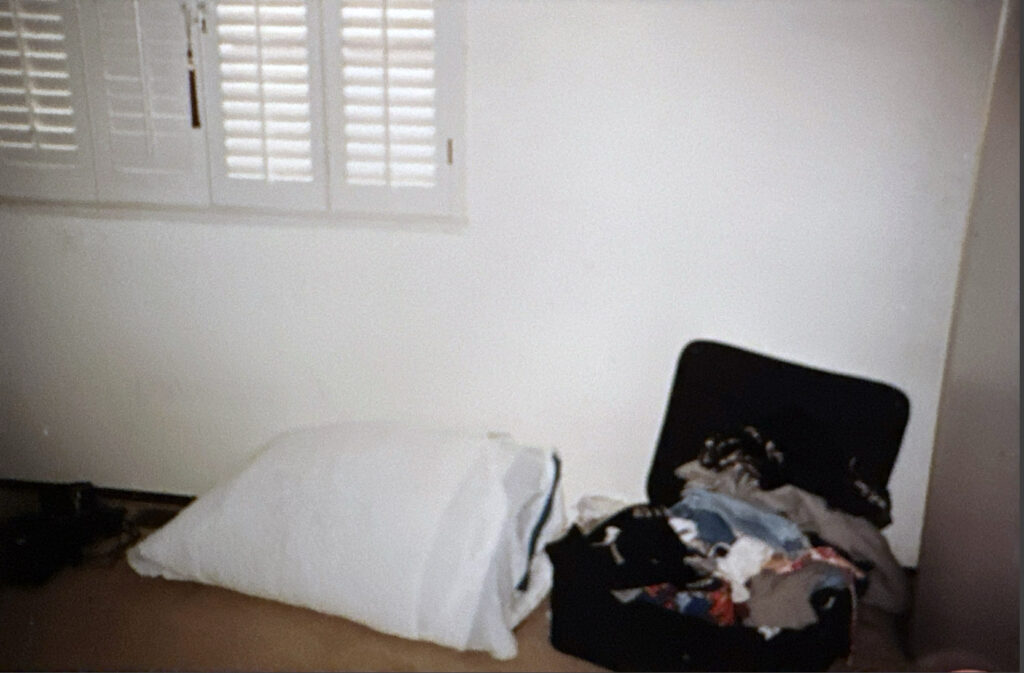Providence, RI – “No Sound Check” -The Hot Club – September 11, 1999

The Hot Club is a free, three-day festival on Providence’s waterfront. A smallish crowd gathered like fall leaves in a puddle, around the perimeter of our blue and white tent. If you’ve ever wondered why music at festivals sounds so shitty it’s because festivals raarely offer sound checks. What, you ask, is a sound check anyway?

What is a sound check?
A soundcheck is a preparatory process before a show that allows the soundman to adjust a venue’s sound system and ensure the best possible audio experience for a performance. A band and audio technician/engineer(s) work together to run through a portion of the show, test-driving songs and sounds.
- The sound engineer: Runs the soundboard or mixer.
- First, they fix the monitors on stage for each artist, allowing them to set their own customized mix.
- For example: I like both my voice and guitar to sound dry, but a lot of artists like reverb in their stage monitors.
- For example: I like both my voice and guitar to sound dry, but a lot of artists like reverb in their stage monitors.
- First, they fix the monitors on stage for each artist, allowing them to set their own customized mix.
- After a band is happy on stage, the soundman will open up the volume on the “front of house” (the area where the audience stands) and ask the band to play a full song.
- The rest of a sound check involves:
- Tweaking monitors on stage for the band.
- For example: I like my mix to contain approximately 60% vocal, 20% guitar, 10% of Soucy’s guitar, and 10% background vocals and to have high sibolence so I can hear my words clearly.
- Tweaking monitors on stage for the band.
- Tweaking the front-of-house volume, bass, and frequencies. The sound engineer often walks around the venue to ensure the music sounds good everywhere and not just where they’re located at the sound booth.
I think of a soundman as one of the most important musicians in a band. They play the room itself and it’s an art and a talent.
A festival, hosting so many acts, doesn’t have the time or bandwidth (pardon the pun) to accommodate the nuances of each artist’s technicalities so instead of a “sound check” they offer something called a “line check.” This allows bands to plug into cables on the stage and make sure noise comes out of each instrument (no matter how bad it sounds). With no sound check, we were hard-pressed to find our instruments in the stage monitors making for a challenging show. Luckily it was short, seeing as my tired voice was throwing a temper tantrum every time I tried to sing above a whisper.
“Sit and Spin,” an all-female rock band, took the stage after us. A lone lanky man with orange, tussled hair danced in wildly poetic gyrations and sleek side winder glides in his Lennon-esque purple shades.

Two pals I rowed with at Brown, Josh & Phil, invited me to go out dancing. None of my guys were up for a night on the town, but I wanted to celebrate getting through 5 gigs without entirely losing my voice. They took me to a place called The Complex— “four clubs in one building for the price of one.” We drifted melodically through doors connecting one decade of music to the next. We danced until our hearts hurt and all the tension in the middle of my chest was gone.
Back at Josh & Phil’s place, candles were lit and dark wine was poured into long-stemmed glassware. I was home—not my home though it may as well have been. I don’t even remember what my home looks like, save that it’s on Pine Street and is white and has a lawn and a porch and black and white tiles in the kitchen and a bed that Kipp built for me with a little heart engraved in its headboard.

I imagined the deep sense of security Josh & Phil must have here, with their fireplace and hardwood floors and a back porch and white walls with pictures on them and a stove that looks like it’s cooked for friends, and blue placemats that are slightly worn at the edges.
They said it’d be OK if I wanted to stay the night instead of finding my way back to the crash pad. I can’t explain my gratitude except to say that I felt that they were handing me a slice of ground, of peace, of a sigh from which I can now sip from for the rest of this strange journey.

I woke up only hours after my head hit the couch. Blurrily, I shuffled down Josh & Phil’s narrow stairwell to find my band in Moby with the motor running and a coffee hanging out the window in a giant paper cup prepared just the way I like it. Taking my seat among my guys, I realized something important. I feel more at home in the van, in my suitcase and in my band than I do in a home—even the one I pay monthly rent not to live in.
